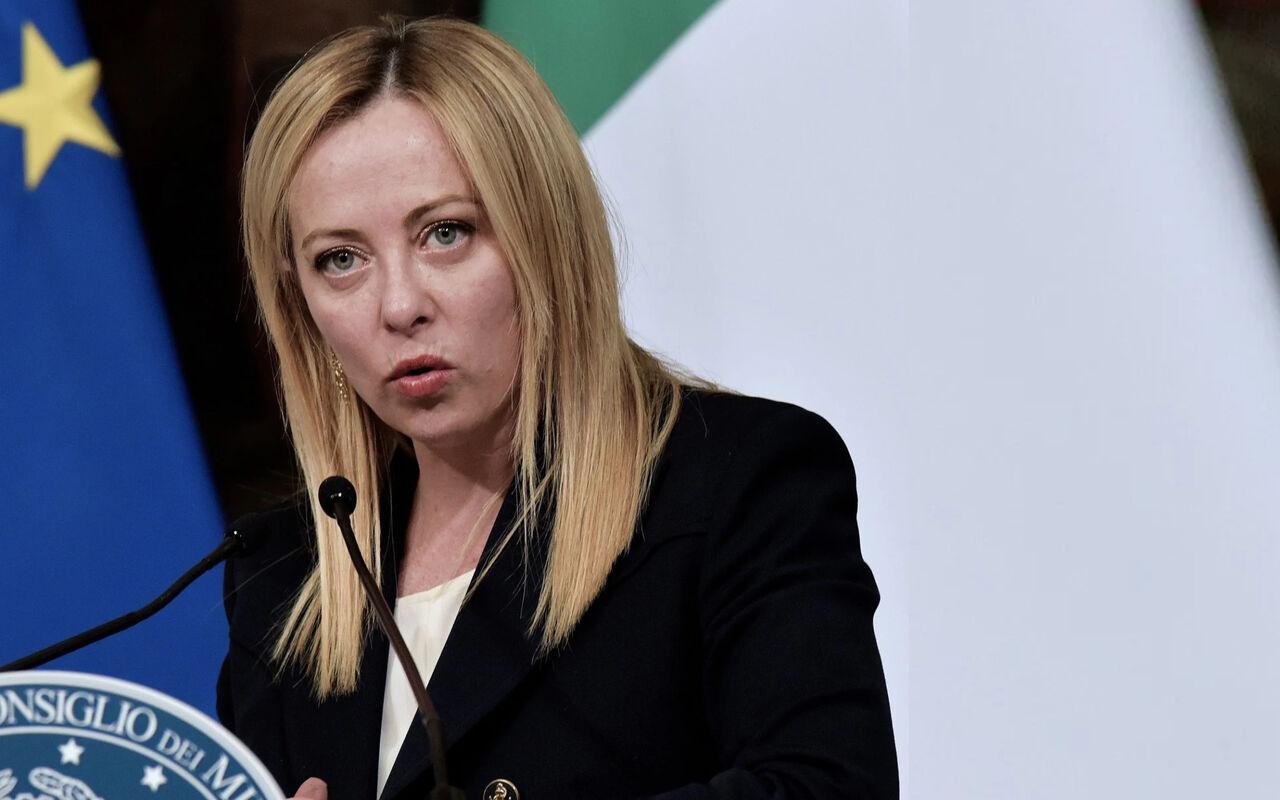Hamid Bayat, in an interview with the website of the Strategic Council on Foreign Relations, added: Italy joined the strategic plan in 2019 during Prime Minister “Giuseppe Conte”, during the visit of Chinese President Xi Jinping to Italy.
Referring to the dimensions of the importance of Italy joining the “Belt and Road Initiative”, he continued: Politically, Italy was the only large European country and NATO member that joined the plan, and economically, due to its high economic and industrial capacities and capabilities, its membership was important for China. Culturally and historically, Italy, as one of the most important stations of the historic Silk Road, was reviving the route between China’s “Xi’an” port and Italy’s “Venice”.
Emphasizing that Italy’s joining the “Belt and Road Initiative” was a great achievement for China, the senior expert of the Studies Center of the Ministry of Foreign Affairs called the internal and international issues effective in the separation of Rome from the Chinese plan and said: Considering the governance and political structure of Italy and the existence of different parties, the views and approach of the parties of that country towards joining the China plan were not the same, and the presence of some right-wing parties opposing this plan, such as the “Brothers of Italy” Party led by Ms. Meloni, the current Prime Minister of Italy, is also very remarkable.
Bayat pointed to the criticisms of the US, as one of the important and significant allies of Italy, for joining the Chinese plan and putting various pressures on Rome, and continued: In this situation, not only a part of the parties was in favor of this idea, but a large part of Italy’s industrial and business owners were also with this idea and emphasized that by joining the “Belt and Road Initiative”, that country can make it easier for exporters to enter the Chinese market and provide better opportunities for its economy; therefore, it should prioritize its economic interests.
The former Iranian ambassador to Rome, while explaining the statistics published by the Italian trade agency in 2019 to 2022 and in the period of joining the China initiative, noted: During that period, Italy’s exports to China grew by 51 percent, and this growth confirms that the joining of that country to the Belt and Road Initiative, has provided good opportunities for its exports and has made China more willing to offer more opportunities for the exporters of Italian industries.
He pointed to Ms. Meloni’s statement regarding the possibility of establishing a good relationship with China even in case of withdrawing the “Belt and Road Initiative”. He added: It is clear that for the Italian economy, the Chinese economy and its relationship with it cannot be denied in any way, and any government at work in that country cannot ignore it.
Bayat reminded: The Americans are also trying to show some economic opportunities to the Italian government while exerting political pressure; therefore, by replacing economic interests, motivation and incentives will be created for Italian companies so that they do not show much dissatisfaction with Italy’s withdrawal from the Chinese plan. In this regard, US President Joe Biden is running a 6.8 trillion dollar economic plan, and many Italian companies are willing to participate in a part of that huge plan and benefit from it. Therefore, Rome must show itself as a reliable ally to obtain this share.
According to the analyst of international affairs, the provision of economic incentives and opportunities by the United States and the pressure caused by the political dissatisfaction of the “Brothers of Italy” Party led by Ms. Meloni has caused his government to withdraw from the Belt and Road Initiative, and it seems that before the end of the five years of that memorandum, Italy will finalize its exit in March 2024.
Saying that Italy is bound to maintain the relationship with China anyway and find a way so that leaving the plan will not seriously damage the path that China has provided for Italian exporters and investors, he added: Many exporters and owners of industries and businesses in Italy believe that membership in NATO should not prevent a smooth and appropriate relationship with China. Just as “Michele Karachi“, a China expert and the deputy minister of finance at the time of the signing of the Belt and Road Initiative, tried to emphasize the importance of joining that initiative, in case of withdrawal, the relations with China should not be harmed.
Bayat stated: Considering Italy’s special political conditions and short-lived governments’ effectiveness, it seems that relations with China may also change in the future. There was the same experience concerning Russia, at the same time, where economic interests should be considered; this issue is considered an important priority in future policies.
The former Iranian diplomat in Rome stated that the relationship with China in the future and how to regulate it would be an important matter and a serious challenge for the future governments in Italy and emphasized that: Withdrawal of a country like Italy from China’s plan is very important for the US and T White House used all available tools to achieve this goal. If the US wants to satisfy the society and public opinion of Italy and owners of industries and businesses, it must provide an alternative to this plan so that parties and public opinion do not return to China again.
He said: Although the United States is expected to compensate Italy for withdrawing from this plan by providing incentives in the future, all governments in Italy are forced to make some parallel in their relations with China, the US, and Europe. Italy’s economy relies on exports, and the huge Chinese market cannot be ignored. On the other hand, despite being dissatisfied with Italy’s decision, it does not seem that China will reduce relations with that country in response to Rome’s action; because that country is one of the important export destinations of Chinese goods. However, reducing some economic concessions may be on Beijing’s agenda.










0 Comments